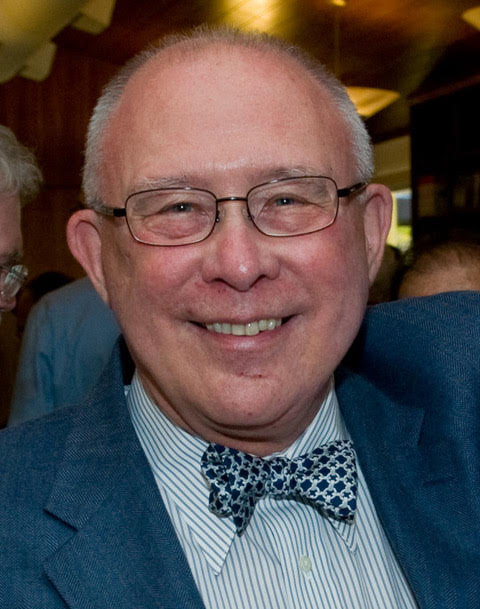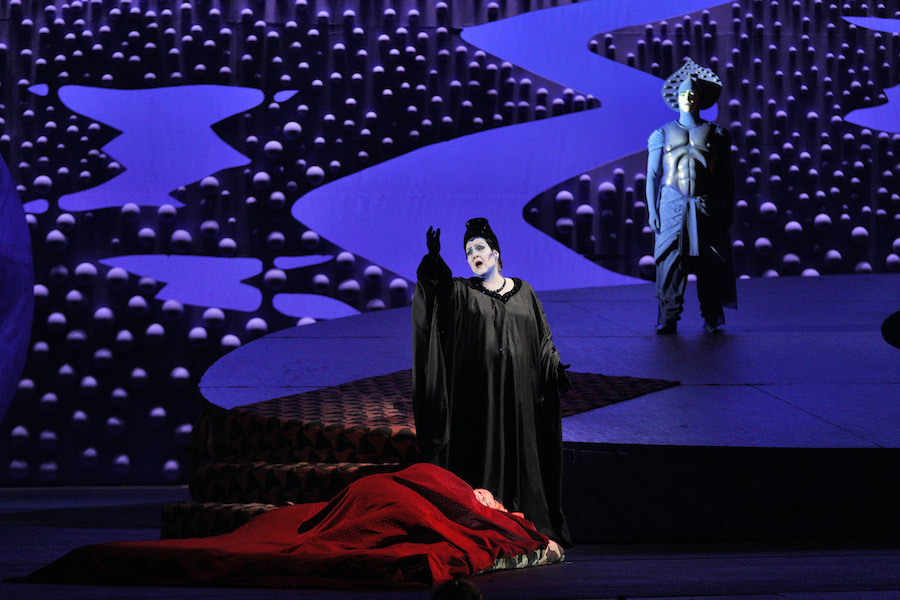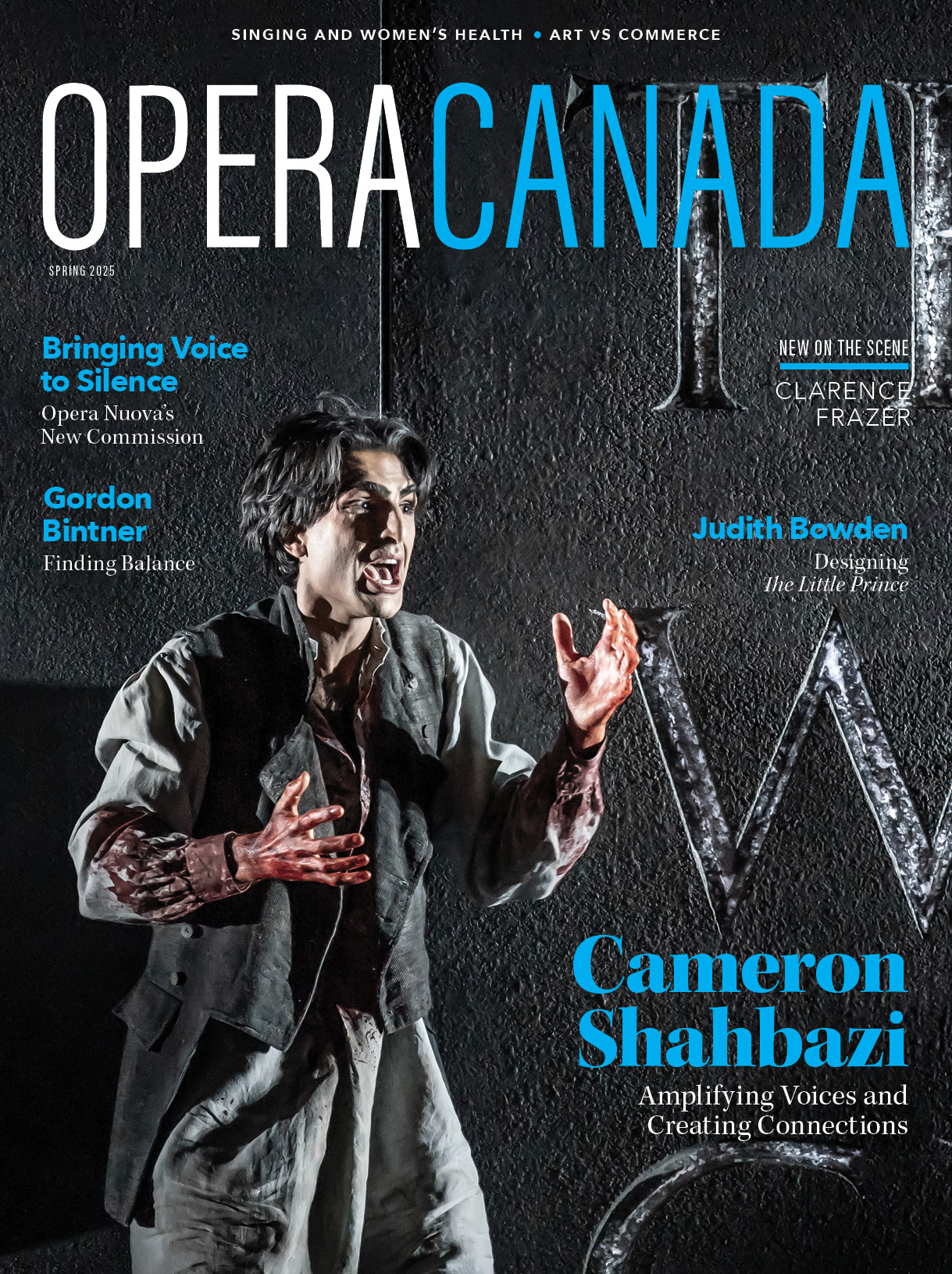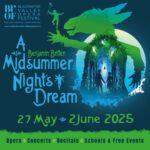The glorious history of Richard Strauss‘s Die Frau ohne Schatten at the San Francisco Opera—including its 1959 U.S. premiere and the still vivid 1976 staging under Karl Böhm and Nikolaus Lehnhoff—is continuing in brilliant form.
Sir Donald Runnicles, the beloved past Music Director here for seventeen years, brought his Wagnerian prowess not only to a pit jammed with 96 players (including glass harmonica), but also to choirs, a banda, and invisible singers tucked into hidden spots throughout the house. We were embraced by sounds that matched the supernatural doings of this strange fairy-tale opera. The score may tempt conductors commanding an orchestra as fine as his to opt for sheer beauty, but Runnicles projected urgency and propulsive energy as well.
W.A. Mozart‘s The Magic Flute, which is built around the spiritual trials of two young couples, launched Strauss and his librettist Hugo von Hofmannsthal into the remote fantasy realms of Die Frau ohne Schatten.
An Empress lacks a shadow signifying the fertility that would prevent her Emperor from turning to stone. Far beneath their magical domain live the earthly Barak, a dyer of cloth, and his rebellious wife, suffocated by his sincere dullness and his crazy, deformed family. But she has a shadow, which the devious nurse who guides the Empress will bribe her to surrender. Living as a servant to the Barak clan, the abstracted Empress develops empathy and cannot bring herself to take away the shadow. The opera’s crucial moment arrives when she speaks (does not sing) the words “Ich will nicht.” But magic restores both shadows, and the fertility they signify. All ends with a celebratory quartet accompanied by the voices of future children.
In an opera world seemingly dominated by directors who replace the stories of masterpieces with their own bright ideas, often leaving audiences trying to figure it all out and distracted from the music, the opulent production here by David Hockney brought sighs of relief. It overflowed in one arresting scene after another with genuine visual splendor. Great swaths of electric blue, red, and emerald green mark the supernatural realm, while wobbling stripes in earthy tones dominate the world of Barak. The late Ian Falconer’s costumes cut across the color realms, yet with the dazzling contrast of royalty’s vermillion and gold robes straight out of Persian miniatures.
For all its fantastic abstraction, this production, which originated some thirty years ago jointly from the Los Angeles Opera and the Royal Opera, Covent Garden, also is childishly literal. We really get Barak’s dye vat, skeins of yarn, and broken mortar–and an amusing sprouting tree of a fountain. The Empress and the Nurse really have a boat that seems to float. To accomplish all of this, Justin A. Partier reconstructed Alan Burrett’s original lighting, which causes the magical transformations of color that fascinated Hockney. Roy Rallo‘s staging kept it all in line with the libretto as well, while tending toward the stand and deliver tradition.
Die Frau ohne Schatten involves 25 principals, with a total 110 personnel. In such a context many fine performers may be overlooked. But certainly the Canadians Olivia Smith and Mikayla Sager require attention. The first, as the Voice of the Falcon, is an invisible but potent, symbolically central figure. Smith shone in this tricky high lying soprano role. As the Guardian of the Temple Gates, Sager does appear in dusty green armor at vital moments, when her rich soprano proved arresting. She is working hard this summer season, appearing also as Kate Pinkerton in Madama Butterfly and as an image of Frida in El último sueño de Frida y Diego.
Strauss, who loved high, transparent soprano voices, gave the transcendent
moments of this opera to the Empress. Camilla Nylund delivered magic as she sang these soaring lines. And, with strong dramatic presence, she held her own against her conniving Nurse, the towering Linda Watson. Watson’s voice is uneven at this stage of her career but with her intensity on stage, the Nurse’s stabbing high notes seemed to have been written for her.
Johan Reuter as Barak gave us a warm, kind man befuddled by the magic swirling about him and by his wife’s outbreaks of fury. His gentle baritone fit this sympathetic role like a glove. The Emperor often is sung by a heldentenor struggling to render his challenging vocal line and so immobile as to seem already to have turned to stone. Although David Butt Phllip is scheduled for some big tenor roles, his voice is of moderate size. Yet, he commanded his notes with seeming ease and, emerged for me as the most emotionally convincing Emperor I have heard.
Nina Stemma was so immersed in the role that she literally became Barak’s wife (she is given no other name). She moved through the several transformations of this character with perfect conviction, at times knocking down the scenery and leaving few floor boards in place. Yet always in character and in control. This was the kind of great diva performance that opera fans adore. It is fitting that, for her service to the company since 2004, she was awarded the San Francisco Opera Medal.
Productions like this, rare though they be, are why we live in hope every time we go to the opera.
Related Content ⬇
Opera Canada depends on the generous contributions of its supporters to bring readers outstanding, in-depth coverage of opera in Canada and beyond. Please consider subscribing or donating today.
SAN FRANCISCO OPERA
JUNE 4-28, 2023
R STRAUSS DIE FRAU OHNE SCHATTEN
The Empress Camilla Nylund
The Emperor David Butt Philip *
Barak’s Wife Nina Stemme
Barak Johan Reuter *
The Nurse Linda Watson *
Spirit Messenger Stefan Egerstrom ♪++
Keeper of the Gates of the Temple Mikayla Sager ♪†+
Apparition of a Youth Victor Cardamone ♪†+
Voice of the Falcon Olivia Smith *♪†+
Barak’s One-Eyed Brother Philip Skinner ♪++
Barak’s One-Armed Brother Wayne Tigges ♪
Barak’s Hunchback Brother Zhengyi Bai ♪++
Voice from Above Gabrielle Beteag ♪†+
Conductor Sir Donald Runnicles
Stage Director Roy Rallo
Production and Set Design David Hockney
Costume Designer Ian Falconer
Original Lighting Designer Alan Burrett *
Revival Lighting Designer Justin A. Partier
Choreographer and Dance Master Colm Seery
Chorus Director John Keene
Fight Director Dave Maier
San Francisco Opera Orchestra
San Francisco Opera Chorus
San Francisco Opera Dance Corps
* San Francisco Opera Debut ♪Role Debut †Current Adler Fellow
+Merola Opera Program Graduate ++Merola and Adler Fellowship Graduate

John Bender is Professor of English and Comparative Literature, Emeritus at Stanford; former director of the Stanford Humanities Center; and author or editor of nine books, including more recently The Culture of Diagram (with Michael Marrinan) and Ends of Enlightenment. He has reviewed for Opera Canada in San Francisco since 1975.










